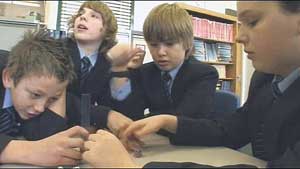Do I stand back and watch, or intervene and tell them what to do?
The Formative Assessment Lessons are of two types; those that focus on the development of conceptual understanding and those that focus on problem solving. Concept Development lessons are intended to assess and develop students’ understanding of fundamental concepts through activities that engage them in classifying and defining, representing concepts in multiple ways, testing and challenging common misconceptions and exploring structure. Problem Solving FALs are intended to assess and develop students’ capacity to select and deploy their mathematical knowledge in non-routine contexts and typically involve students in comparing and critiquing alternative approaches to solving a problem.
In this PD module, we focus on Problem Solving lessons. In most Mathematics classrooms, students are provided with structured tasks and are told precisely which techniques to use: students learn by following instructions. Even tasks described as ‘problem solving’ often amount to mathematical exercises rephrased in ‘plain English’, with a well-defined ‘correct’ solution method. Problems and situations that arise in the world , however, are rarely exercises in the use of a particular skill or concept. Such problems require students to make simplifications, model situations, choose appropriate knowledge and processes from their ‘toolkit’, and test whether their solution is ‘good enough’ for the purpose in hand. If students are to learn to use their skills autonomously in their future lives, they will need opportunities to work on less structured problems in their classrooms.
About the MAP PD Modules
These modules have been developed by the Shell Center team at the Center for Research in Mathematics Education, University of Nottingham. They draw on successful materials developed by the team for Bowland Maths and Improving Learning in Mathematics.
Getting started
Download the print materials (links on the left) and read the main Module Guide.
Use the tabs at the top of the screen to browse the video which accompanies this module.
